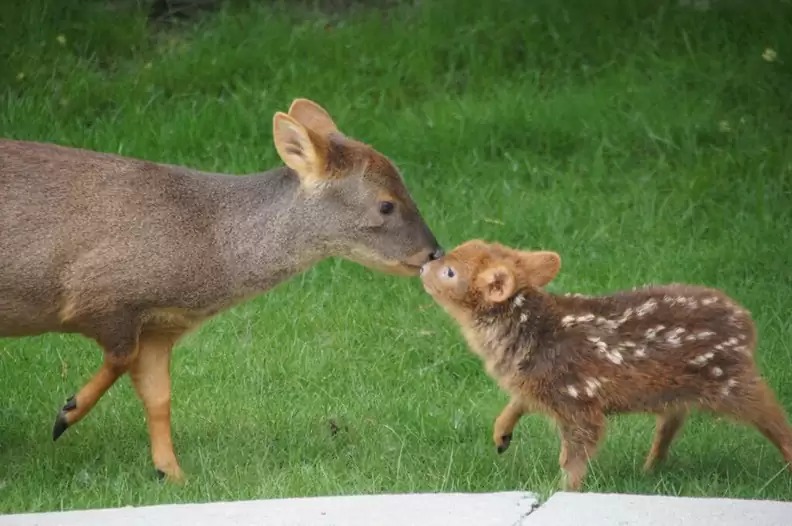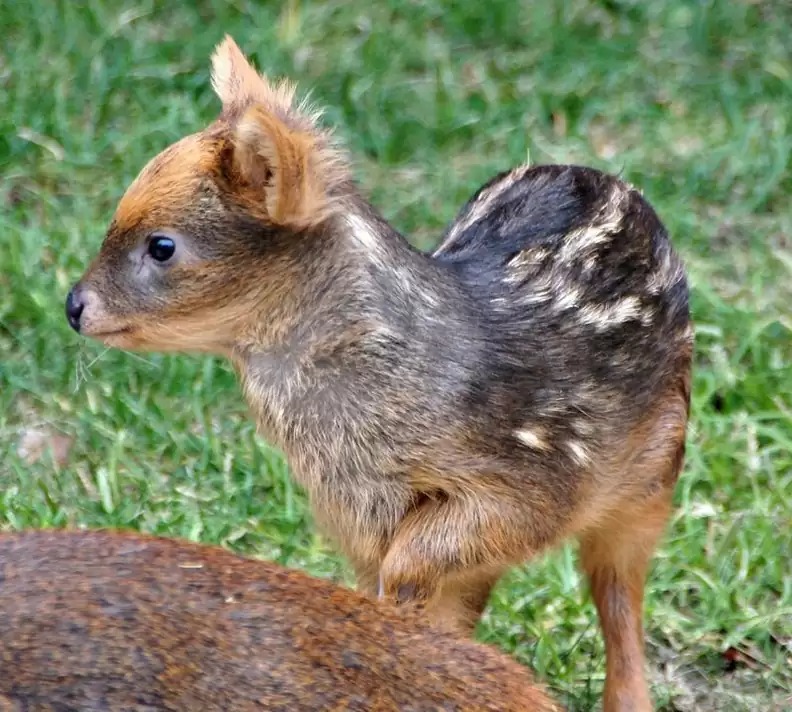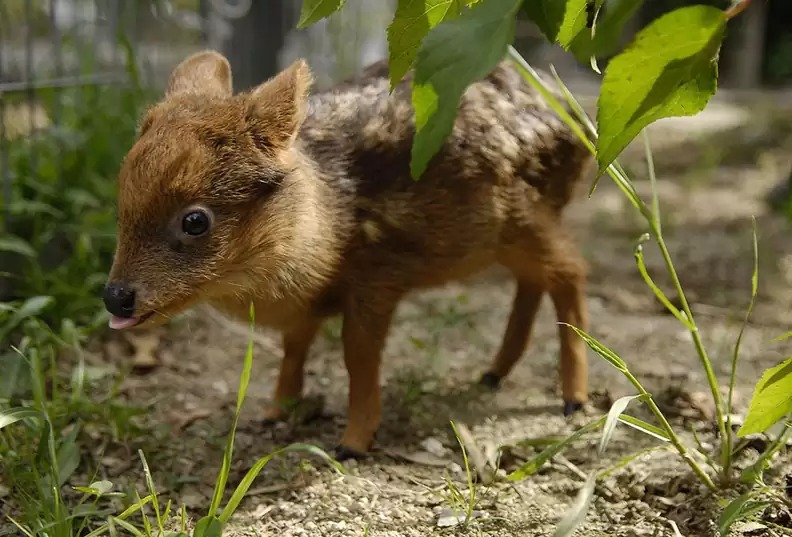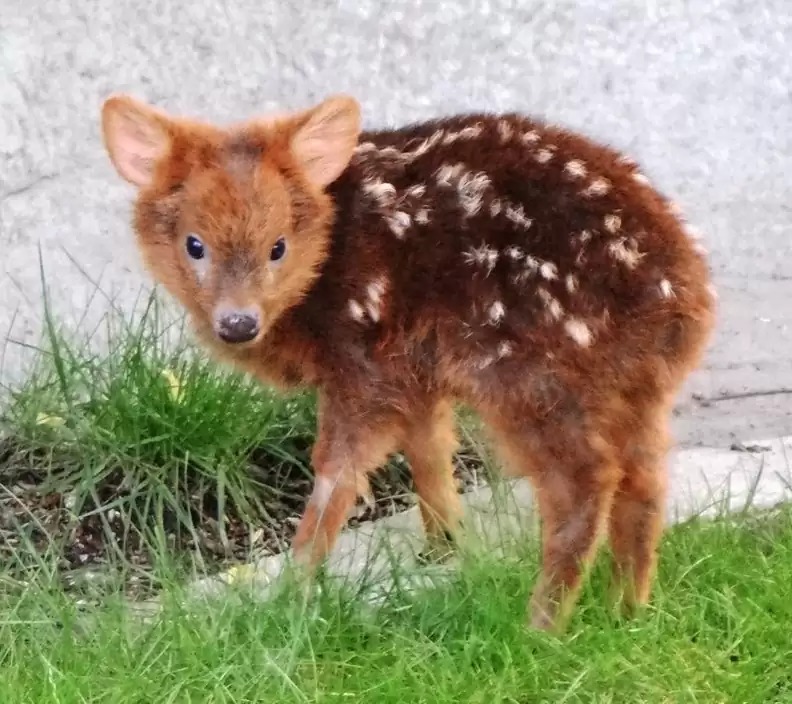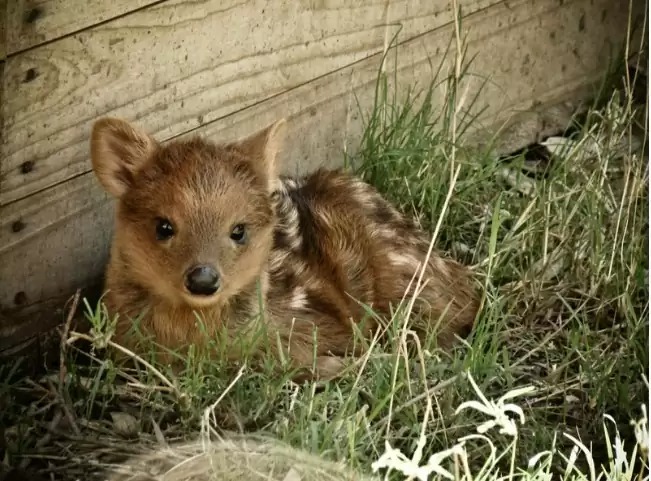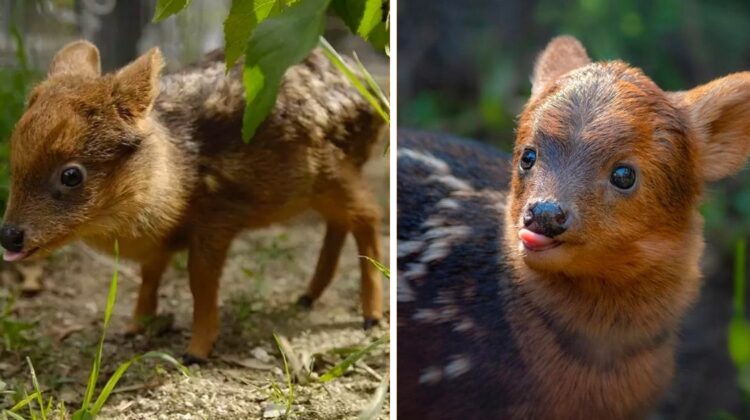
These tiny deer are approximately the size of a domestic dog and the world’s smallest species of deer.
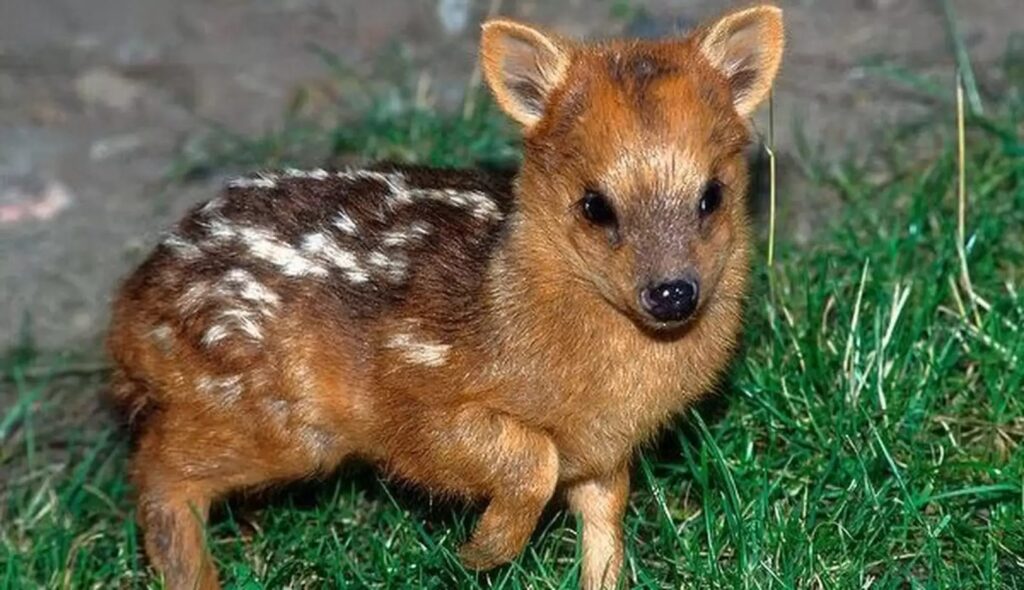
The pudu is divided into two species, both of which are found in South America.
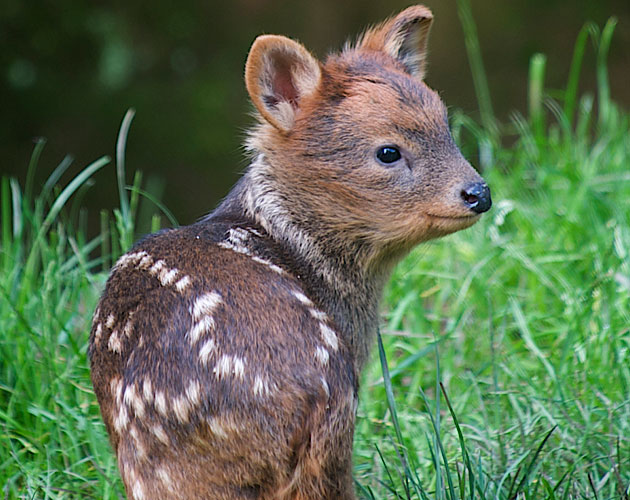
The northern pudu is endemic to Peru, Venezuela, Ecuador, and Colombia, whereas the southern pudu is native to Argentina and Chile.
They are just about 12 to 16 inches tall.
Pudus, like most other grazing mammals, are vegetarians, subsisting on leaves, grass, seeds, and falling fruit.
They can reach vegetation by standing on their rear legs or, unlike their bigger deer kin, by climbing trees when necessary.
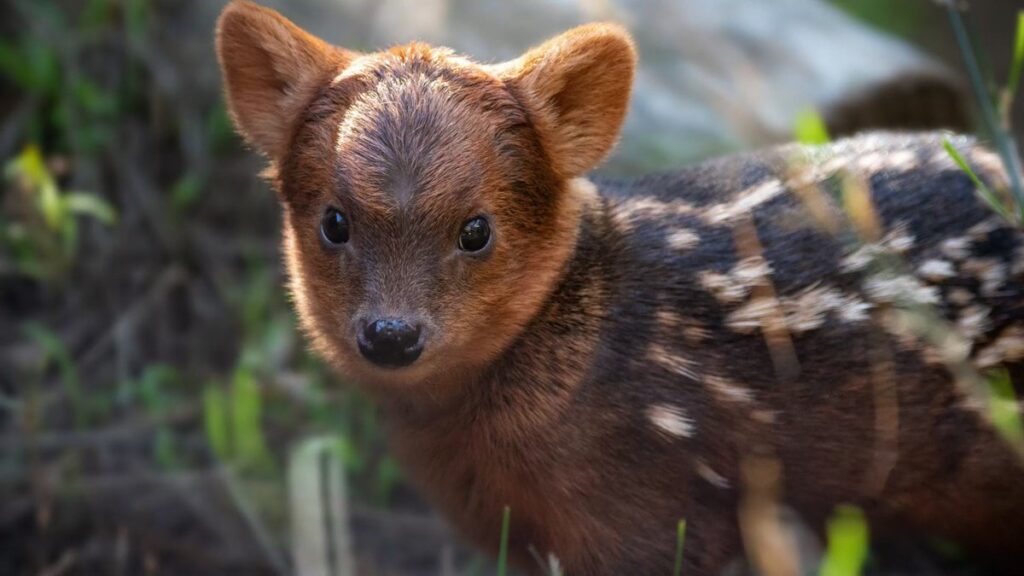
Pudus are wary creatures who are constantly on the lookout for predators. When they are pursued, they run in a zigzag pattern, making them more difficult to catch by larger predators.
They are also capable of climbing and jumping when necessary.
These lonely animals live in deep South American woods, where they create a sophisticated network of trails to assist them negotiate the undergrowth.
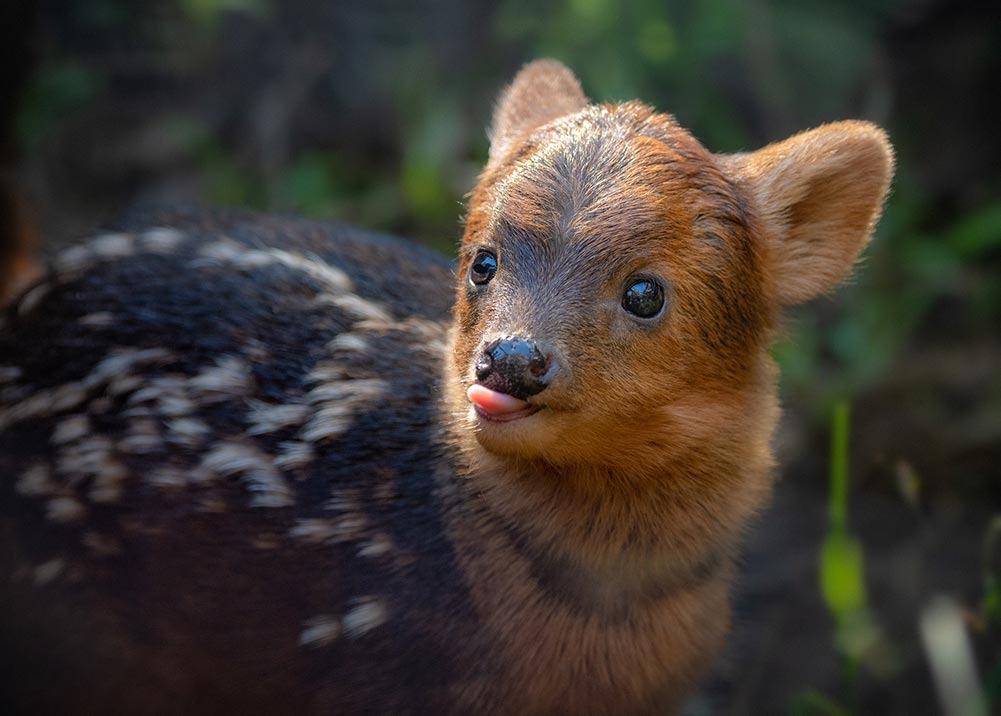
Pudus are only observed together during mating, which is usually in the fall, before giving birth to one or two fawns in the spring.
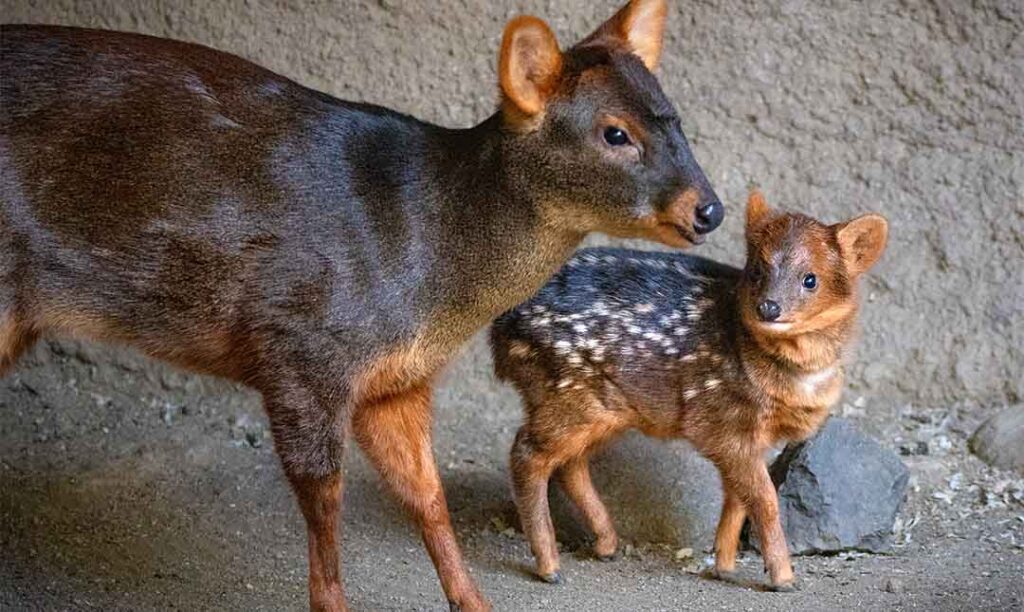
Male pudus, like their larger deer cousins, are distinguished by their antlers.
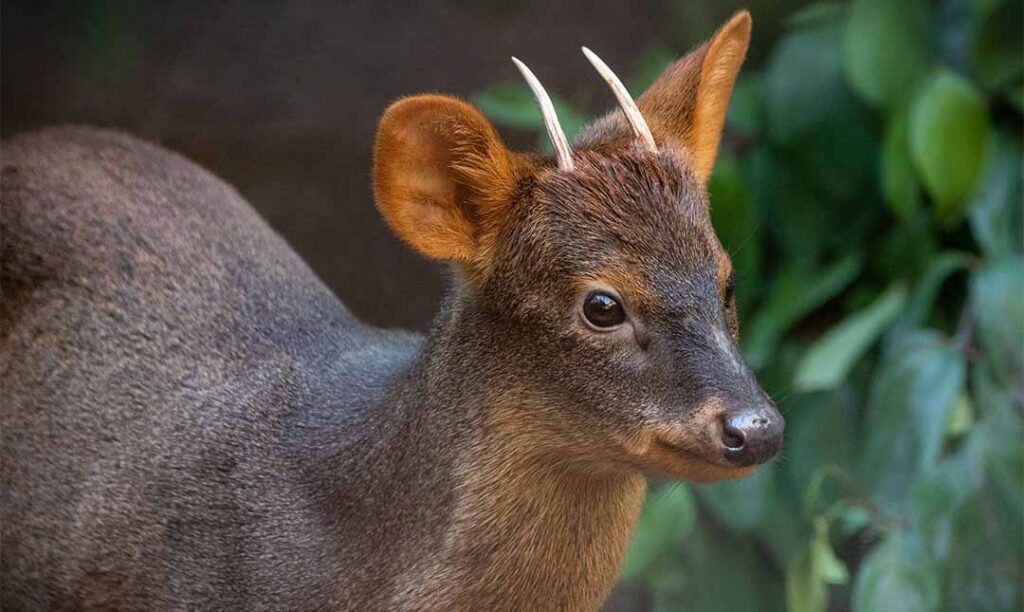
Their lifetime is typically 8 to 10 years, however this is at danger due to a variety of external causes such as habitat degradation, as well as infections and parasites obtained from domestic dogs.

